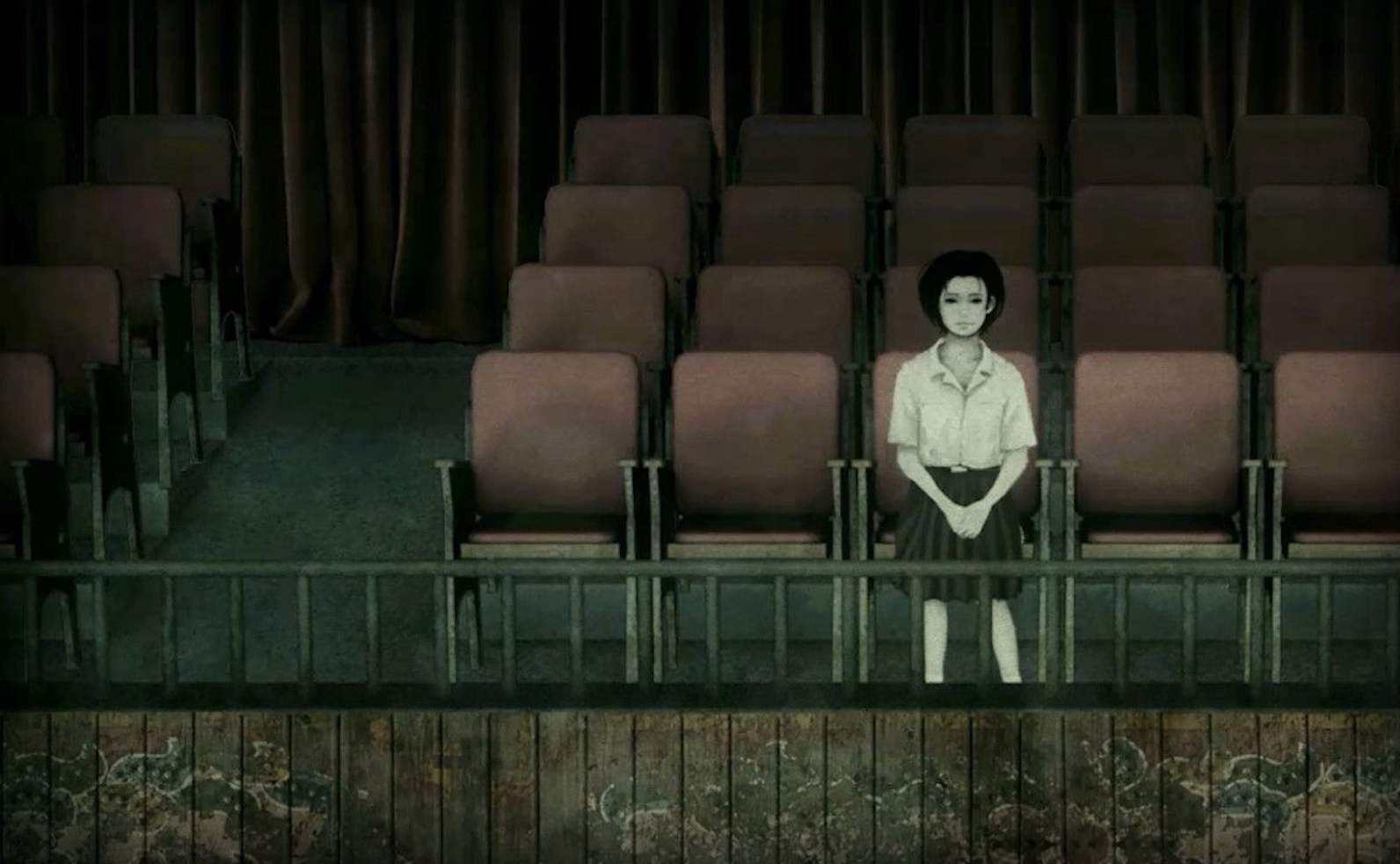
Someone in class recommended this game and upon Google-ing, I was immediately taken by the visual style and downloaded it right away. Detention is a 2D horror game set in a fictional alternative of 1960s Taiwan where you play as various students trying to escape from your high school from which all other (living) people have disappeared. It’s a simple game; you walk around looking for clues and items that unlock new sections and new clues. You can keep the items on your person as well as a notebook. When you encounter the “lingered”- ghostly zombie-types, you have to hold a button to hold your breath; a simple mechanic that somehow feels really fun. If you fail to do this, the lingered can’t hurt your character, but their suddenly swift movement and a loud sound effect gives the player an almighty scare, which really leads you to want to figure out your next step so you can get these students the hell out of there. This game has an incredible colour scheme and every detail is extremely polished, right down to the menus and the sound effects, which meant I had no problem with its simplicity and felt at every moment that I was playing a top-tier game.
Despite being a Kubrick tragic I had somehow never gotten around to watching Barry Lyndon. Three hours long. Set in 1750s Britain. You have to be in the mood. Stage 4 Lockdown got me into that mood and I’m so glad it did. The film follows Redmond Barry, a young poor bachelor who leaves his agricultural working-class home and eventually becomes head of an English family’s vast fortune. On his way there he reluctantly joins the army for multiple sides, acts as a spy, and becomes a professional gambler. On paper it sounds like a difficult watch- a sprawling journey featuring dozens of characters- and I think this is because it seems like no one is capable of making period epics well these days; in fact, the only recent Western film of a similar quality that comes to mind is There Will Be Blood. But this film is a Kubrick film and certainly was made with the same intense attention-to-detail he brought to everything he touched. The music, the costumes, the cinematography, the acting, the story beats and progression, these things all work together in perfect Kubrickian harmony, making the world enticing and the jokes knowing. Though Barry is really kind of an awful person, the audience has a deep sympathy for him on his journey through a cut-throat world. My only gripe with the film is that it is vaguely forgettable- it is missing the horrific moments of some of Kubrick’s most famous films, no doubt the reason why it is one of his lesser known offerings.
Pirates of the Caribbean: The Curse of the Black Pearl
Yep, I went there. I wanted to numb the pain of lockdown over the break with a crappy movie, but was pleasantly surprised to rediscover this black pearl of a film. I’d say it’s been about ten years since I decided this film series was a bit of a joke. Five-part, multi-billion dollar sagas are easy to dismiss as cynical, and in hindsight its male stars Johnny Depp, Geoffrey Rush and Orlando Bloom have all been me-too’d, but I came away thinking this first film, at least, was pretty cool. This is a gorgeously shot epic that follows a poor blacksmith, Will Turner, reluctantly teaming up with quirky pirate, Captain Jack Sparrow, to help save the woman he loves and recover Jack’s ship and crew who have turned on him. Sailing the 1720s Caribbean seas is basically exactly where I would like to be right now, and this story does just about enough- and avoids any serious blunders- to make me feel like I was there. Being almost 20 years old now, the film is of another time. It feels “pre-algorithm”, the filmmakers take risks and are rewarded, a quality missing from recent massive budget films like Blade Runner 2049 or the new Star Wars films. I’m not articulate enough to explain what those risks are exactly, but I suspect it has something to do with feeling unpredictable and original.
About This Work
By Harry Hughes
Email Harry Hughes
Published On: 08/09/2020
